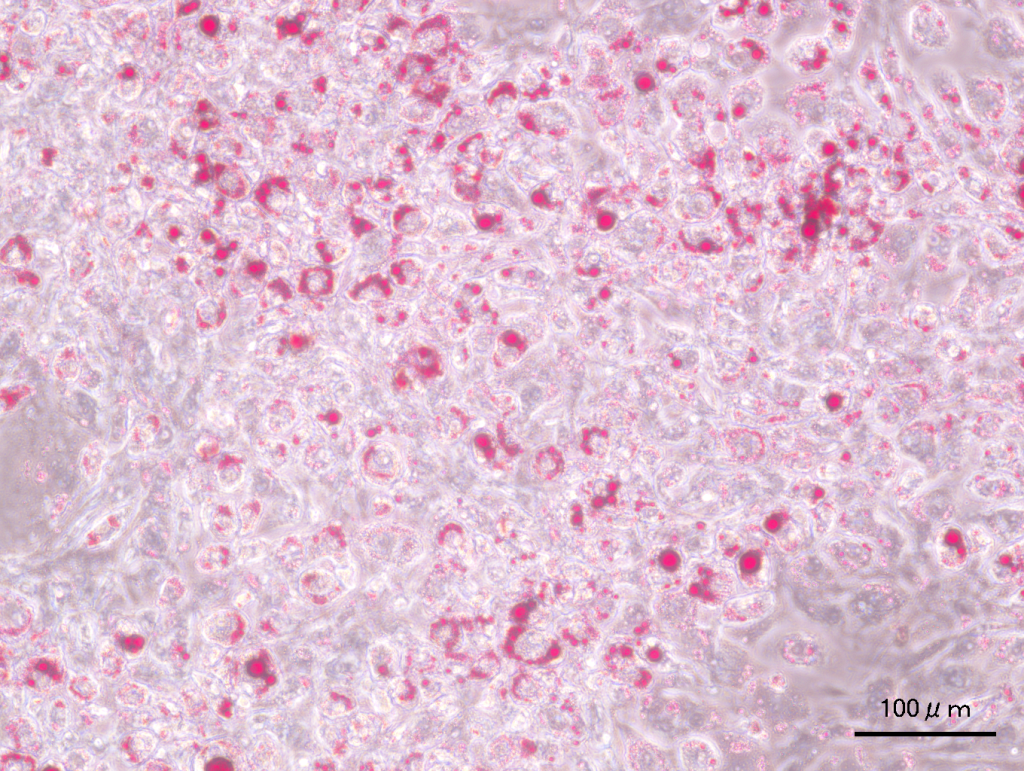From experts on integrated circuits and wireless communication to specialists in neurology, exercise physiology, and pharmaceuticals, the Research Institute for Science and Technology’s Division of Smart Healthcare Engineering has assembled researchers from a wide variety of fields. Their common goal is to transition to future medical care that maintains health and makes illness a thing of the past. Associate Professor Takahiko Yamamoto is involved in several research projects, including energy transmission to artificial hearts implanted in the body of patients using wireless technology. ‘Components known as coils are placed both inside and outside the body, and the electromagnetic induction thus produced transmits electric power,’ explains Associate Professor Yamamoto. However, many problems remain. One of the most important things is to ensure that the coils do not become misaligned. Although maintaining alignment helps reduce infections and related problems, misalignment also prevents the device from working properly.’ Associate Professor Masakazu Umezawa is conducting research on interactions between nanoparticles and the body. ‘There are many types of nanoparticles. They exist within the human body as well. They are produced from a variety of cells and transport functional molecules to other cells, which then allows these cells to exhibit the new function,’ says Associate Professor Umezawa. ‘We are focused on the fascinating role they play in regulating the internal environment.’ Each study conducted is related to new research.

Multiple joint studies are being conducted at the Division of Smart Healthcare Engineering. One of these is a study entitled ‘Health Promotion/The Longevity Mechanism via Exercise that Accesses the Brain-Organ Communication’ in which both Associate Professor Yamamoto and Associate Professor Umezawa are involved. This study is attempting to identify, on the nano level, the principles that underlie the effects of exercise on mental health in humans. ‘The study has two aims,’ explains Associate Professor Umezawa. ‘One is clarifying the physiological mechanisms underlying the positive results associated with exercise. The other is discovering how the same benefits that are gained from exercise can be provided to people who do not want to exercise or who are unable to exercise. If these goals can be accomplished, we may be able to prevent disease and control mental health.’ While these studies are focused on humans, most studies are normally conducted on mice and rats. In cases in which sensors are placed on the rodents and such small animals are then allowed to move freely while being monitored by researchers, Associate Professor Yamamoto’s wireless electric power transmission technology plays an invaluable role.

Currently research at the Division of Smart Healthcare Engineering is being carried out in three fields: (1) systems for sensing vital biometric data, (2) the transcutaneous energy and information transmission to artificial internal organs, and (3) wireless transmission systems for the purpose of remote healthcare. What lies beyond these studies is a world in which illness has become a thing of the past. Monitoring of human health conditions has already begun throughout the world. Many people are already aware of the fact that there are devices that are able to measure energy consumption and electrocardiograms. ‘Our major goal is to enable the acquisition of all the data needed to support health,’ says Associate Professor Yamamoto. ‘To achieve this goal, it is important to gain the ability to sense the human body at any time, every day. As our research progresses, we believe we will become able to obtain information from both within and outside the body.’ Associate Professor Umezaka adds that researchers want to be able to ‘better understand anything that is of significance by sensing everything going on inside the body.’ Perhaps we can already imagine a future in which people no longer suffer from illness.
■ Main research themes
■ Main research themes